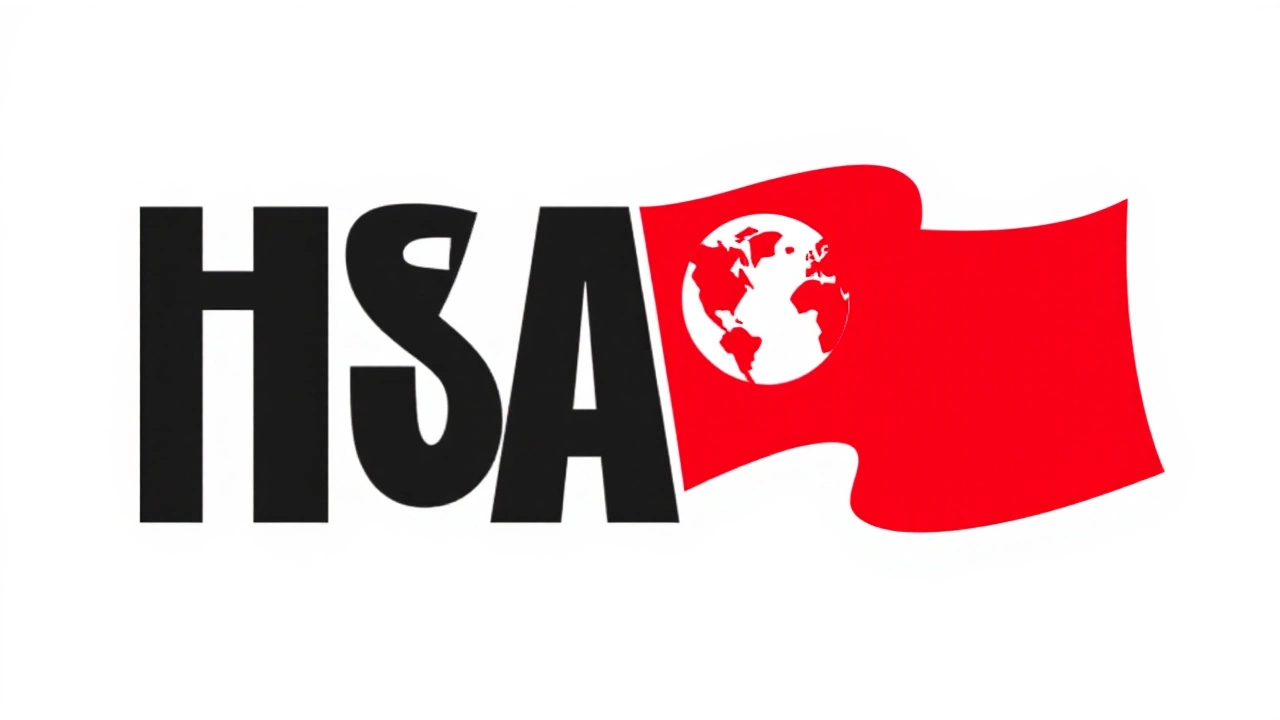Assassination of Nicaraguan Exile Sparks Global Call to Protect Dissidents Abroad

When retired Nicaraguan army major Roberto Samcam Ruiz was shot dead in a quiet neighborhood of San José, Costa Rica, in June 2025, his death wasn’t just a homicide—it was a message. At 66, Samcam had spent seven years in exile after fleeing the regime of Daniel Ortega and Rosario Murillo, his life stripped of citizenship, his identity erased by a government that refuses to let dissent survive—even beyond its borders. Now, with no public statement from Costa Rican President Rodrigo Chaves, the international community is being forced to ask: if a retired soldier can be killed here, where is safe for anyone who speaks out?
A Pattern, Not an Isolation
The Group of Experts on Human Rights in Nicaragua (GHREN) didn’t treat Samcam’s killing as an anomaly. In their report to the UN Human Rights Council in Geneva, they called it “at least the fourth attack on an exile since 2021.” Each case followed a chilling script: a critic leaves Nicaragua, seeks refuge abroad, builds a quiet life—then vanishes, often violently. Samcam, stripped of Nicaraguan nationality in February 2023 and granted Spanish citizenship in July 2023, had become a ghost in his own country. His murder confirmed what human rights groups have feared: the Ortega-Murillo regime doesn’t just silence critics at home. It hunts them.Reed Brody, a lead expert with GHREN, put it bluntly: “A climate of fear has spread among the Nicaraguan diaspora, since no place in the world seems safe for Nicaraguans who oppose Daniel Ortega and Rosario Murillo.” That fear isn’t theoretical. Since 2018, more than 317,000 Nicaraguans have fled to Costa Rica alone—55% of all Nicaraguan refugees worldwide, according to the United Nations High Commissioner for Refugees (UNHCR). By July 2025, the total number of Nicaraguan asylum seekers abroad reached 345,800, per Human Rights Watch’s World Report. These aren’t just numbers. They’re mothers, teachers, journalists, soldiers—people who once believed their country would protect them. Now, they’re hiding.
The Long Shadow of Repression
The roots of this transnational terror stretch back to the 2018 protests, when more than 300 people were killed by state forces, according to UN documentation. The Ortega government called it a “coup attempt” funded by Washington. But what followed wasn’t just crackdowns—it was erasure. In February 2023, Nicaragua revoked the nationality of 94 dissidents, including Samcam, turning them into stateless persons overnight. Then came the constitutional overhaul in February 2025: a legal coup that cemented Ortega’s absolute control over the legislature, judiciary, and electoral system. Within days, Nicaragua announced its withdrawal from the UN Human Rights Council.It wasn’t just political opponents being targeted. Since October 2023, over 200 religious figures have been expelled, barred from returning, or forced into exile, Human Rights Watch reported. Meanwhile, the regime released more than 53,000 common criminals under the banner of “family coexistence”—8,400 of them in 2025 alone. As EL PAÍS noted, these included “robbers to perpetrators of femicide who did not complete their sentences.” The message was clear: political prisoners are punished. Criminals are tools. Dissidents? They’re eliminated.
Who’s Protecting the Exiles?
Costa Rica, hosting the largest concentration of Nicaraguan refugees, has remained conspicuously silent. President Chaves has declined to comment on Samcam’s murder, even as human rights groups—including CEJIL, International Service for Human Rights (ISHR), and Colectivo 46/2—begged for action. In a joint statement on June 23, 2025, they demanded four things: an immediate end to transnational repression, strengthened protection mechanisms for exiles, formal communication channels with host nations, and international oversight to ensure justice.But without political will, these demands remain paper promises. Costa Rica’s silence speaks volumes. It’s not that the government doesn’t know what’s happening—it’s that it’s afraid to act. The Ortega regime has made threats against host countries before. It has pressured diplomatic missions. It has used economic leverage. And now, with Samcam dead, the message is unambiguous: cross us, and we’ll find you.

What Comes Next?
The international community has few good options. Sanctions have failed to deter Ortega. Diplomatic isolation hasn’t changed his calculus. The UN’s mechanisms are slow, fragmented, and often ignored. But the clock is ticking. More Nicaraguans are fleeing every day. More are being targeted. And every silence emboldens the killers.Some experts suggest a new international tribunal for transnational repression, modeled after the International Criminal Court but focused specifically on cross-border attacks on exiles. Others call for safe corridors—legal pathways for dissidents to relocate to countries willing to offer not just asylum, but active protection. One thing is certain: the status quo is no longer acceptable. If the world lets this go unchallenged, the next assassination won’t be in Costa Rica. It’ll be in Spain. Or Canada. Or the United States.
The tragedy of Roberto Samcam Ruiz isn’t just that he was killed. It’s that he was one of thousands who believed they had escaped. They didn’t. And until the world starts treating these murders as crimes against humanity—not just political tragedies—we’re all complicit.
Frequently Asked Questions
Why is Costa Rica not speaking out about Roberto Samcam Ruiz’s assassination?
Costa Rican President Rodrigo Chaves has maintained official silence, citing an ongoing investigation. But human rights groups criticize this as a dangerous delay. Costa Rica hosts over 317,000 Nicaraguan refugees—55% of the global total—and has long positioned itself as a regional human rights leader. Its silence signals either fear of retaliation from Ortega’s regime or a strategic decision to avoid diplomatic friction, leaving exiles dangerously exposed.
How many Nicaraguans have been stripped of their nationality since 2021?
At least 94 Nicaraguans, including retired Major Roberto Samcam Ruiz, were stripped of their nationality in February 2023 by the Ortega-Murillo regime. This legal erasure is part of a broader strategy to render dissidents stateless, cutting them off from social services, property rights, and international protection. Many, like Samcam, later obtained citizenship in Spain or other countries, but the original revocation was designed to isolate and destabilize them before physical attacks.
What role does the UN’s Group of Experts on Human Rights in Nicaragua (GHREN) play?
GHREN is a UN-mandated body that monitors, documents, and reports on human rights violations in Nicaragua since 2019. It has repeatedly warned that the regime engages in transnational repression, including surveillance, threats, and assassinations abroad. Its reports, presented to the Human Rights Council in Geneva, are among the most authoritative sources on the topic. After Samcam’s death, GHREN called for urgent international intervention, stating that “nowhere in the world seems to be safe” for Nicaraguan critics.
Are other countries taking steps to protect Nicaraguan exiles?
Most host countries, including Spain, the U.S., and Mexico, have expanded asylum processing but lack coordinated protection protocols. Only a few, like Canada and Sweden, have initiated pilot programs offering relocation assistance and security training to high-risk dissidents. However, without multilateral agreements or binding commitments, these efforts remain fragmented. The absence of a unified international response leaves exiles vulnerable to targeted violence, especially since Nicaragua has no extradition treaties with most Western nations.
What happened to Nicaragua’s membership in the UN Human Rights Council?
In February 2025, shortly after constitutional reforms granted Daniel Ortega absolute control over all branches of government, Nicaragua announced its withdrawal from the UN Human Rights Council. This was a symbolic but significant act—it freed the regime from international scrutiny and signaled its intent to operate without accountability. The move followed years of obstruction, including denying access to UN investigators and refusing to implement recommendations from previous reports.
How does the Ortega regime justify its actions against exiles?
The regime labels all critics as “terrorists,” “coup plotters,” or “agents of U.S. imperialism.” It uses state media to portray exiles as traitors who betrayed their homeland. By framing dissent as treason, it justifies extrajudicial violence abroad as “national defense.” This narrative is reinforced by the release of violent criminals while political prisoners remain jailed—creating a moral distortion that confuses domestic audiences and deters international solidarity.